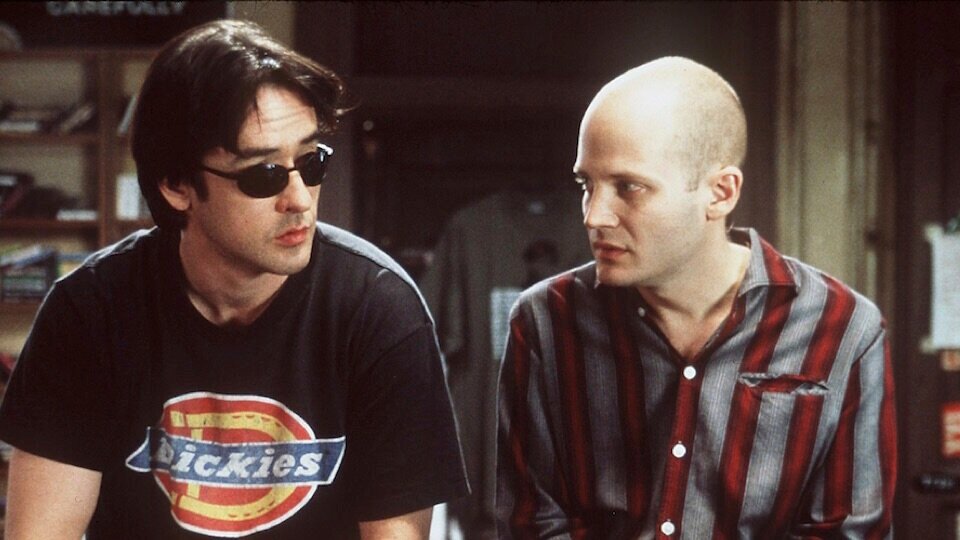Hulu's High Fidelity Brings Appreciation of Music to the Masses
Source: Okayplayer
Source: Culture Solar
A grungy, Brooklyn-bred music lover (Rob) struggles with her love life all while trying to run a record with her best friends. That sounds nothing short of relatable, yet still entertaining. Not to mention, the lovely actress assuming this role is Zoe (freaking) Kravitz. HBO has done it again: a great cast, wardrobe, writing, and score.
The show pays homage to the 2000 film High Fidelity that features Jack Black, as it takes place in the same record shop and many characters outfits have similarities. The main takeaway, aside from the comparisons of the movie or the killer wardrobe, is the score and theme of music and record appreciation. The score included great songs by renowned artists ranging from classic rock to hip-hop; there are hit singles from David Bowie, Blondie, OutKast, Marvin Gaye and Frank Ocean, just to name a few. This show, while its main purpose was to portray a Brooklyn love-and-heartbreak story, had an underlying theme of appreciation for great music and the use of vinyl records.
I know what you’re thinking. If the show is about a woman that owns a record shop, of course records and good music are going to be a main part of the storyline. Most of the show took place in the record shop and within this setting viewers could see how music brought Rob and her friends together, along with other music lovers.
The record shop was truly an authentic portrayal illustrating the love of music and appreciation for vinyl records. Now, many millennials and Gen Z are obsessed with “vintage” things: polaroid or film cameras, old clothing, and records. This stereotypical millennial that pretends to love music is shown on the show a few times as a mockery of people who pretend to care about old music, and adds a relatable twist by showing how for some people the collection of records was a means of being trendy and having that vintage aesthetic. Rob, however, is a millennial that represents on of the select few who truly care for music by the greats and the sweet, unpolished sound of a vinyl spinning on a record player.
The way the storywriters portrayed Rob’s dedication to preserving love of music and sharing it with others was executed in a meaningful way, too. Every significant thing that would happen to her—she would create playlists or go back to a certain album as a capstone for that moment in her life. The song that would play for the viewers to hear, or the songs she would talk about adding to her playlist would represent the emotions she was feeling. This process of using music as therapy within the storyline was not only relatable, but done beautifully. Rob knew how to get through tough times with music, and she knew how to help others with music.
Warning: Spoilers ahead!
Source: Hollywood Reporter
In one of the more notable episodes, two kids steal a stack of records and Rob chases after them down the street, but is unable to catch them. Rob and her friend find a flyer with their pictures on it and an address; they were promoting their music. Rob ventures there to retrieve the stolen merchandise only to find that the kids are scanning the records into digital copies because they could not afford to purchase them. They claim they were going to return them. Rob notices that they care about music by their reactions and the array of albums they took—they have good taste. She lets them keep the records on the condition they return them.
Was that a good business move? Nope, not in the slightest. But Rob saw that they had a love for music, and she saw that truly caring about music creates more value than monetary value.
Rob has a conviction for the greater good about the love for music, and it was seen again when she turns down a large collection of rare records (including a limited addition David Bowie album that is worth a few grand). Why would she do this? Was the price too high? No, for her it was too low. The woman wanted $20 for it and Rob refused. I’ll spare the details of why the woman wanted to sell the collection for a mere Andrew Jackson bill, but isn’t that crazy turning down the deal? Rob claims she cannot take part in taking records of that much value away from any music lover. While it was a good deal, it would be a crime in her heart. Rob is a symbol of and for music lovers everywhere who care more about music as an art form, and genuinely value the work that is put into it.
Valuing the hard work of music artists and appreciating music as more than just a catchy tune is often lost now, and this show does a fantastic job of bringing that back. Not as a trend, but as a reminder that people devote so much to music and it is to be appreciated.
Enjoy the playlist below with all the tracks from the show!



